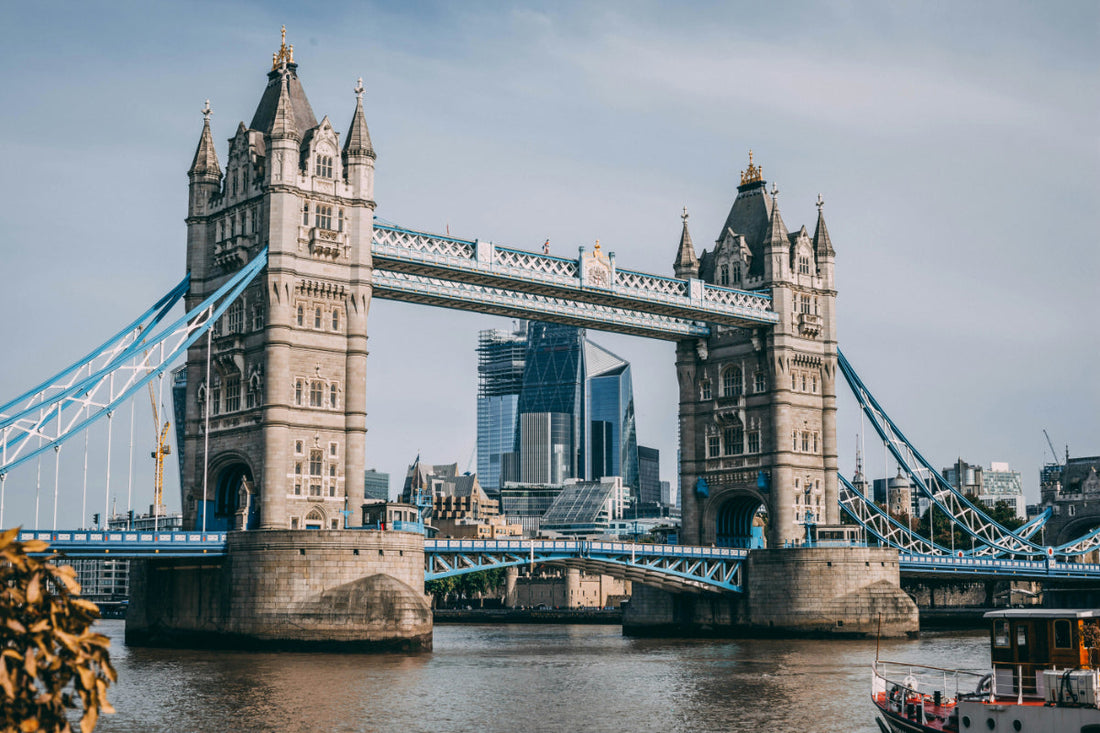From the bustling streets of London to the serene Scottish Highlands, the United Kingdom offers travellers a rich mix of history, culture, and natural beauty. Whether you’re touring iconic landmarks like Big Ben, hiking Snowdonia, or exploring the historic towns of Northern Ireland, staying hydrated is key. But many travellers wonder: "Is tap water in the United Kingdom safe to drink?"
The clear answer: Yes, tap water in the United Kingdom is generally safe to drink. However, a few nuances are worth knowing to enhance your comfort and confidence while traveling.
For water safety insights worldwide, visit our Interactive Tap Water Safety Map.
Overview of Tap Water Safety in the United Kingdom
Tap water in the UK is among the highest quality globally, meeting stringent safety standards set by the Drinking Water Inspectorate (DWI) in England and Wales, the Drinking Water Quality Regulator (DWQR) in Scotland, and the Drinking Water Inspectorate for Northern Ireland. These agencies regularly test water for microbiological, chemical, and radiological parameters to ensure safety.
According to the World Health Organization (WHO) and the Centers for Disease Control and Prevention (CDC), UK tap water is safe for drinking throughout the country.
Risk Level: ✅ Safe to Drink - No Filter Needed, But Can Improve Taste & Purity
Common Concerns and Regional Variations
While tap water safety is consistent across the UK, travellers might encounter minor differences:
-
Taste Differences: Some areas, especially in Scotland and northern England, may have softer water, while parts of southeast England have “hard” water with higher mineral content, affecting taste.
-
Chlorine Levels: Some visitors notice a faint chlorine taste, particularly in urban areas where chlorination is used to disinfect water.
-
Old Building Pipes: Very old properties may still contain lead pipes. While most have been replaced, occasional cases remain; landlords and hotels are required to manage this risk.
How to Ensure the Best Drinking Water Experience
Though UK tap water is safe, these practices can enhance taste and traveller confidence:
Recommended Water Practices:
-
Use a Filter Bottle: A filtration solution like the WaterWell™ Travel Filter Bottle improves taste by reducing chlorine and filters out trace impurities.
-
Public Drinking Fountains: Found in parks, stations, and public spaces in cities like London and Edinburgh. Look for signs labelled “Drinking Water.”
-
Bottled Water as Backup: Available widely if preferred for convenience.
Hygiene and Dining Tips:
-
Ice cubes are safe in restaurants and cafes.
-
Tap water is safe for brushing teeth and cooking anywhere in the UK.
Reliable Sources of Drinking Water in the UK
You can access safe drinking water from various reliable sources:
-
Tap Water at Hotels and Rentals: Always safe unless otherwise advised.
-
Public Water Fountains: Increasingly available, especially in urban centres.
-
Restaurants and Cafés: Tap water is legally required to be served for free on request in licensed premises in England, Wales, and Scotland.
Why Use a WaterWell™ Filter Bottle in the UK?
Even with excellent tap water standards, carrying your WaterWell™ Travel Filter Bottle provides extra benefits:
-
Enhanced Taste: Removes chlorine or mineral flavours.
-
Convenience: Perfect for sightseeing or hiking trips.
-
Eco-Friendly: Reduces plastic waste, aligning with the UK’s environmental initiatives.
Order Your WaterWell™ Travel Filter Bottle →
Explore Global Water Safety with Our Map
Planning travels beyond the UK? Use our Interactive Tap Water Safety Map for water safety guidance worldwide.
FAQs About Drinking Tap Water in the UK
Is tap water safe everywhere in the UK?
Yes, tap water meets high safety standards across England, Scotland, Wales, and Northern Ireland.
Do UK residents drink tap water?
Yes, locals routinely drink tap water without concern.
Can you request tap water in UK restaurants?
Yes. Licensed establishments are legally required to provide tap water for free when serving alcohol.
Should I worry about lead contamination?
Rare in modern properties, but filtering water offers peace of mind if staying in very old buildings.
Rural and Regional Water Quality
Tap water quality is consistently high in rural areas as well, though some remote properties may rely on private wells or springs. In such cases, filtration adds extra assurance.
Seasonal and Environmental Considerations
-
Flooding or Natural Events: Occasionally, local advisories may suggest boiling water after extreme weather events affecting supply lines.
-
Maintenance Works: Short-term discoloration may occur during plumbing works; water remains safe once flushed.
Further Reading and Official Resources
Stay informed through official sources:
Final Thoughts
The United Kingdom’s tap water ranks among the safest globally, allowing travellers to hydrate confidently whether in historic cities, rural landscapes, or seaside towns. With your WaterWell™ Travel Filter Bottle, you can enhance taste, reduce plastic waste, and ensure convenient hydration.
Cheers to safe travels and refreshing adventures across the UK!
Explore more global water safety insights on our Interactive Tap Water Safety Map.
Disclaimer: The information provided in this guide is for general informational purposes only and should not be considered medical advice. Travelers should consult local health authorities or medical professionals for personalized advice regarding water safety and health precautions while abroad. While WaterWell™ products are designed to reduce contaminants, no filtration system can guarantee 100% protection from all possible pollutants or pathogens.

